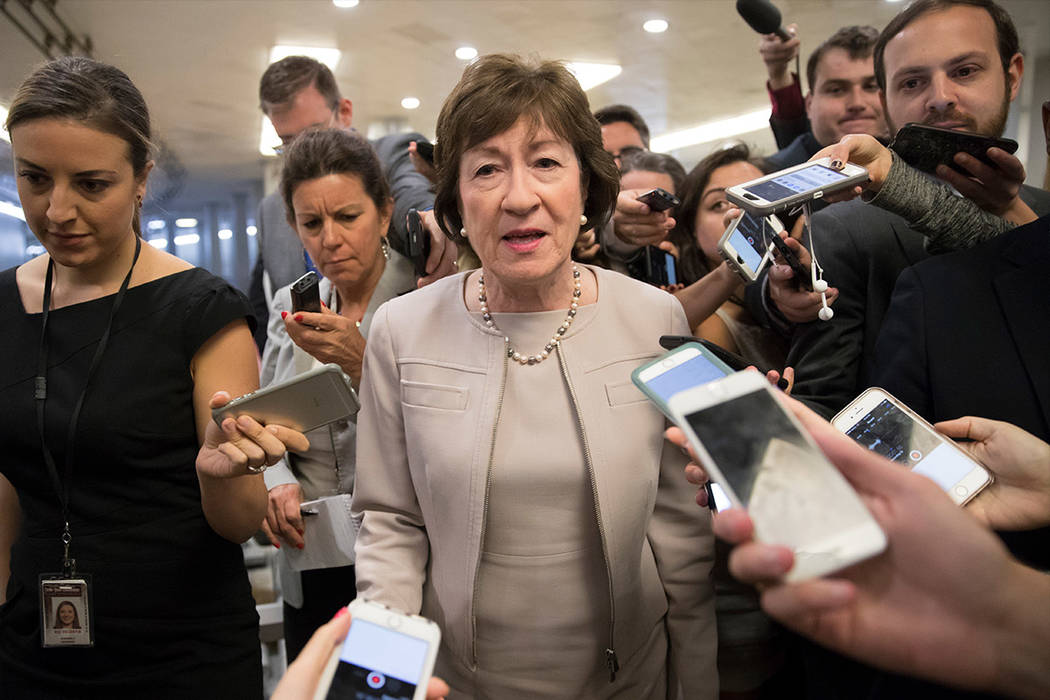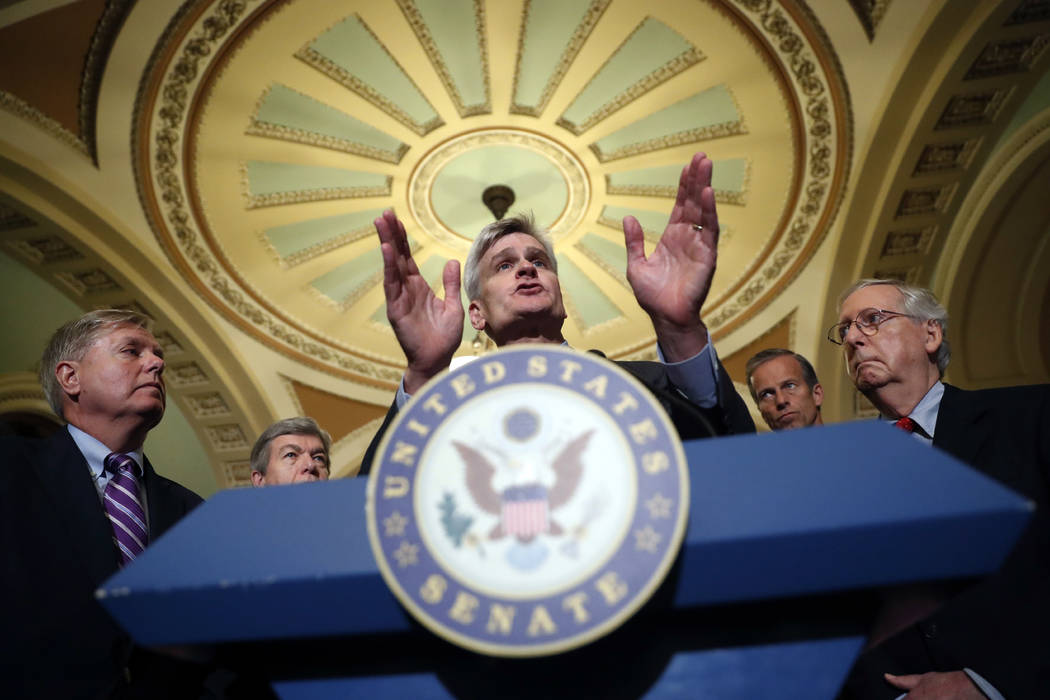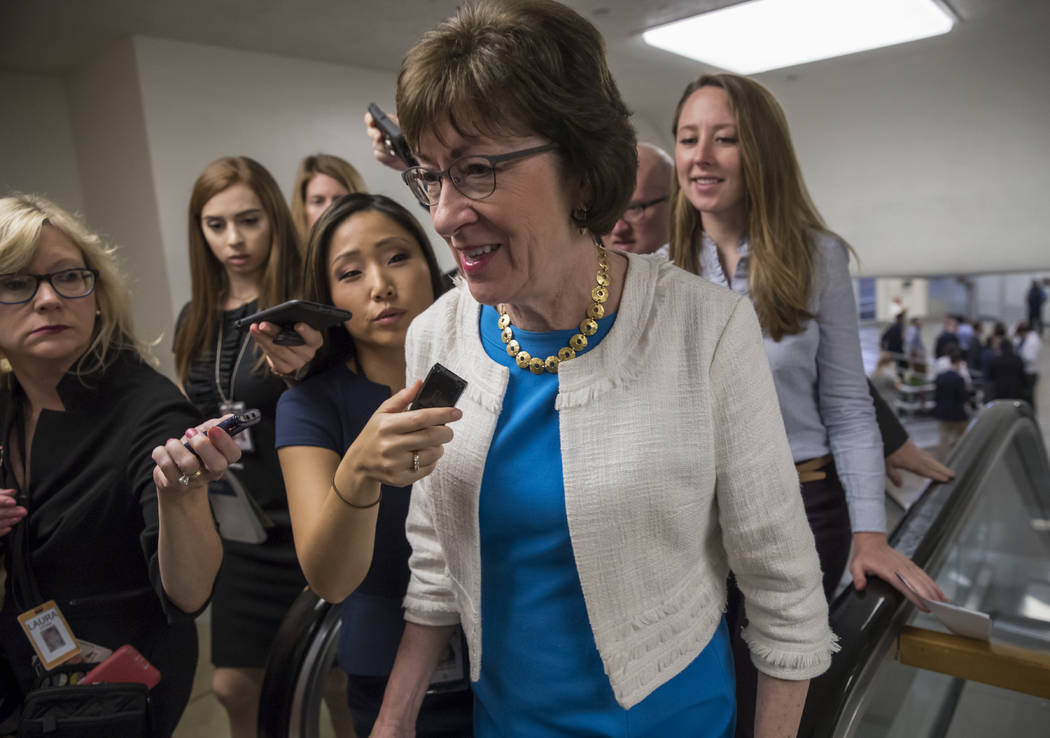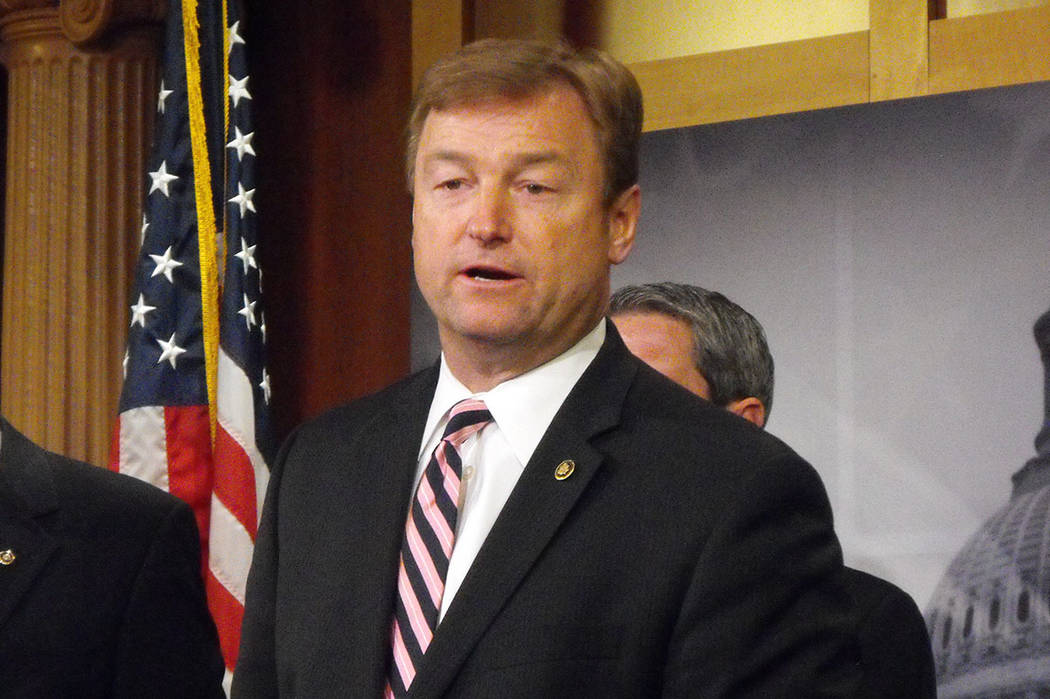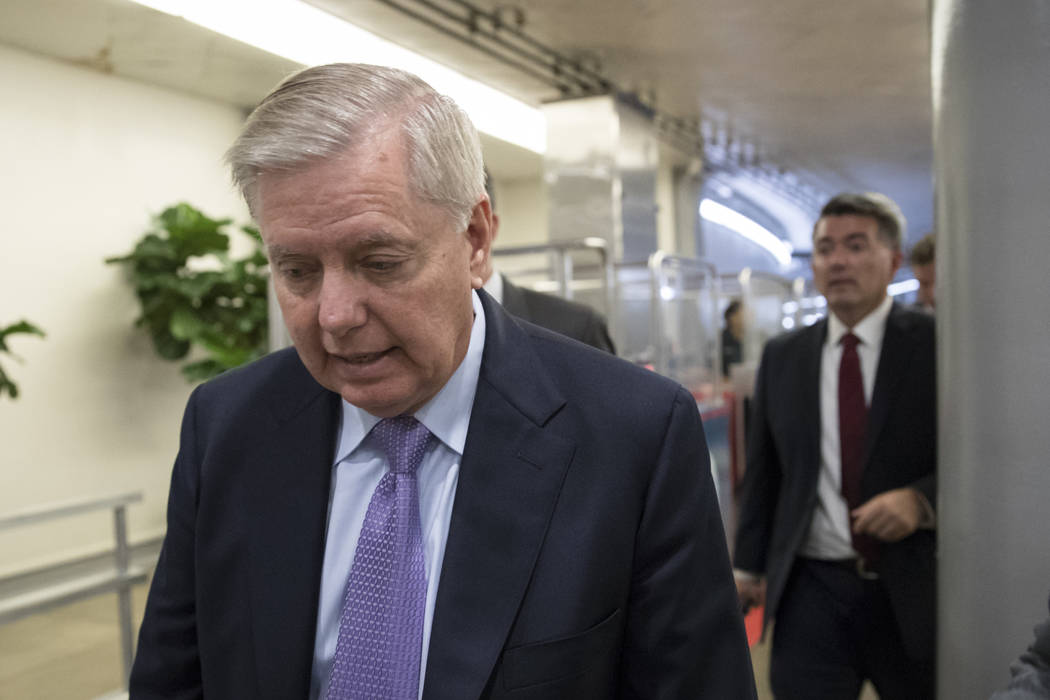GOP bill to repeal Obamacare appears doomed after key senator defects
WASHINGTON — A Republican bill to repeal Obamacare appeared doomed late Monday when Sen. Susan Collins said she would vote against the measure, despite last-minute revisions and a hearing held to sway reluctant GOP lawmakers.
Collins, R-Maine, said the bill makes “sweeping changes and cuts in the Medicaid program.”
“This would have a devastating impact to a program that has been on the books for 50 years and provides health care to our most vulnerable citizens, including disabled children and low-income seniors,” she said in a statement.
Her announcement came after the release of a partial analysis of the bill by the Congressional Budget Office, which said millions would lose coverage under it. The CBO told Senate leaders that a full analysis would not be available by this week, when the chamber had been expected to vote.
Collins’ decision made her the third Republican to oppose the measure, along with Sens. John McCain, R-Ariz., and Rand Paul, R-Ky., killing the bill unless one of them flips back in the coming days.
Collins’ announcement came during a Senate hearing on the bill.
The hearing was immediately interrupted when protesters, including many in wheelchairs, erupted into a chant: “Don’t touch the Medicaid, save our liberty.” It was then postponed as members of the Capitol Police arrested those who refused to stop disrupting the proceedings.
The protests underscored the emotions on both sides of the debate on the GOP repeal effort to curb spending and replace the Affordable Care Act, commonly known as Obamacare, passed by Democrats in 2010.
Senate Finance Committee Chairman Orrin Hatch, R-Utah, opened the hearing 20 minutes late and warned lawmakers and audience members to refrain from outbursts that make “good fodder” for television or Twitter.
But the ranking Democrat, Sen. Ron Wyden of Oregon, called the hearing an “abomination” that was hastily thrown together.
First public airing
The hearing was the first public airing since the bill was introduced this month by Sens. Lindsey Graham, R-S.C., and Bill Cassidy, R-La., and joined by co-sponsors Sens. Dean Heller, R-Nev., and Ron Johnson, R-Wis.
Employer and individual mandates would be eliminated, and states would be given waivers on regulations and flexibility in spending the federal money. The bill would also end the Medicaid expansion embraced by Nevada and 31 other states and the District of Columbia and repackage and distribute some of those funds for subsidies and Medicaid to states under a block grant system.
“I believe our plan is the best path forward,” Heller said.
Heller said Nevadans face higher premiums and fewer choices under Obamacare. He said the bill would give states more flexibility to serve “Medicaid populations as they see fit.”
Nevada Gov. Brian Sandoval, a Republican, has joined a bipartisan group of governors who oppose the bill because of Medicaid cuts.
But Graham warned: “Medicaid is on an unsustainable path.”
Sen. Mazie Hirono, D-Hawaii, who has stage 4 kidney cancer, said the bill lacks “compassion” for people with long-term illness because it would cap coverage.
Hirono said the bill “treats health care like a commodity that can be bought or sold.”
Dick Woodruff with the American Cancer Society said the bill would push insurance companies to offer basic plans that would put cancer patients and survivors at risk of inadequate treatment.
Trump turns up pressure
President Donald Trump on Monday pressured Republican lawmakers to support the bill.
“Alaska, Arizona, Maine and Kentucky are big winners in the Healthcare proposal,” he wrote on Twitter. “7 years of Repeal &Replace and some Senators not there.”
Last week, McCain said he would vote “no” and denounced the partisan process used to ram the health care bill through the Senate.
Paul, R-Ky., said Monday he would vote against the revised bill, just hours before Collins announced her opposition.
Sen. Lisa Murkowsi, R-Alaska, who voted against a repeal bill in July, voiced concerns about Medicaid cuts to her state. She remained uncommitted Monday.
Cassidy acknowledged that sponsors made changes to formulas in the bill that would give Hawaii and Alaska more funds because of their low population and high cost of living.
But as tweaks were made to appease moderates, conservatives like Sens. Ted Cruz, R-Texas, and Mike Hill, R-Utah, said they were still reviewing the legislation.
And Graham told the Senate hearing he was getting pushback from GOP colleagues “because I leave the taxes in place.”
Republicans control the Senate with a razor-thin 52-48 majority. They need 50 votes, plus a tiebreaker by Vice President Mike Pence, to pass the legislation under budget rules that expire on Saturday.
When the rule expires, 60 votes would be needed to clear parliamentary hurdles and cut off debate to end a filibuster.
Senate Majority Leader Mitch McConnell, R-Ky., wants to bring the repeal bill to the Senate floor this week. An administration official said that could occur as early as Wednesday.
But McConnell may not call for a vote if he believes it will fail as previous Obamacare repeal bills did in July.
Democrats are united in their opposition. Sen. Catherine Cortez Masto, D-Nev., said the bill would roll back the Medicaid gains in the Silver State under Sandoval.
Bipartisan approach urged
Sandoval and the bipartisan group of governors have urged the Senate to shelve the bill and seek a bipartisan approach to shoring up individual insurance markets.
The Nevada governor reiterated his opposition again last week, citing cuts in Medicaid and the potential loss of coverage for Nevadans who became eligible under the expansion — roughly 300,000 people.
Independent analysis shows Nevada could also lose $2 billion from 2020 to 2026 because of Medicaid cuts in the bill, according to Avalere Health, a private consulting firm.
States, like Nevada, would also see arbitrary caps on Medicaid coverage for programs, including maternity, disabilities and those for the elderly under the bill, said Cindy Mann, the former deputy administrator and director of the Center for Medicaid and CHIP Services.
Mann said the bipartisan group of governors was correct in seeking a bipartisan step forward, because many states would suffer under the reshuffling of Medicaid spending.
“You could say it creates a one-size-fits-all funding formula,” Mann said.
In Pennsylvania, passage of the GOP bill would give the state only two years to create a new health care system, said Teresa Miller, the acting secretary for the Department of Human Services in that state.
That is too short a period, she said, noting it took the state four years to implement Obamacare.
“We have had less than two weeks to analyze this bill,” Miller said.
Contact Gary Martin at 202-662-7390 or gmartin@reviewjournal.com. Follow @garymartindc on Twitter.
Key provisions of health-care bill
— Repeals Obamacare individual and employer mandates.
— Repeals Obamacare medical device tax.
— Gives states flexibility to wave Obamacare regulations on insurance coverage.
— Redistributes Medicaid expansion funds through block grants to all 50 states.



